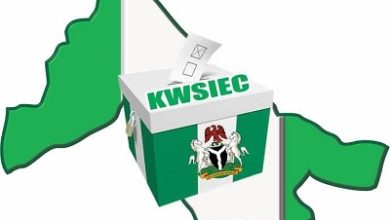19th anniversary of the fourth republic

By all accounts, this is the longest that our country has had democratic experiment since independence in 1960. If anything, the experience so far tells that democracy is a study in patience.
Mistakes abound, but so far, no system known to man is better than it yet. This week, our country celebrated this milestone and as has become customary, it is an event used by different levels and arms of government to measure successes, failures and set agenda for the next year. This year’s wasn’t an exception. We wish millions of freedom-loving Nigerians a happy Democracy Day (May 29). Although, it held earlier in the week, we are still in order by this felicitation. It is a special day set aside to remind ourselves the day Nigeria finally extricated itself from the trammels of military tyranny, a 30-year period Nigerians would love to forget.
Nigeria was born into democracy. However, the steady march towards bettering our democracy and deepening development was truncated by the military in January 1966. That was the first time. And other interventions and palace coups were to follow. After a brutal fight against military rule after it had nullified a well accepted election in June 1993, Nigeria returned to democracy on May 29, 1999. With that return, equally come its own challenges. Talks about due process, the rule of law, of representation of the people in government, of a National Assembly, about the Constitution and the freedoms and the liberties it guarantees, about the separation of powers to guarantee justice, fairness and balance in government became the real issues.
We will be naive then to think that democracy is an end by itself. No! In the end, security and welfare of the citizens is. Democracy offers the opportunity for broad participation, choice of leaders and periodic changes if need be. And we have been at it. There is still a long way to go. The excitement that heralded the new dispensation may have worn thin, but let us not forget that, at least, we can now express ourselves freely. Has it met the aspirations of the Nigerian people? The answer is yes and no. At a time, it does look like democracy isn’t worth it, but Nigerians who were old enough to experience military rule, can tell that we have turned a corner.
One of the major drawbacks of our democracy is corruption. Laws appear to have been deliberately made to slow judicial processes. This administration is confronted by that and seems to be frustrated by the system and painfully due to its own internal contradictions. The present government has attempted to confront corruption in high places, yet corruption remains a tough challenge and the nation is still struggling with the malaise. Nevertheless, the quantum of property and cash recovered from alleged corrupt people like we have done in this time, shows there has been progress. The economy has faced the vicissitudes of our reality. Things may seem to be looking up now given a stable and upward swing in crude oil prices in the international market, but a great deal, of course, depends on how the economy is managed.
We have serious security challenges. This menace has posed significant threat to our republic. These threats range from terrorism, banditry, herdsmen attacks, kidnapping and militancy. Armed robbery is still part of it. Unfortunately for government, that is exactly what the Constitution of the country speaks of in Section 14 (2) (b), which states that “the security and welfare of the people shall be the primary purpose of government.” Today, insecurity is the greatest threat facing the Nigerian citizen. The near-daily killings in different parts of the country, especially those perpetrated by suspected herdsmen and cattle rustlers have been the greatest threat to peace in recent years, in addition to the terrorism of Boko Haram. We can do better, we must do better.
We hope that as we march steadily into the 20th anniversary, the events of this week will help our country realise that we can only do better together. Shouts of marginalisation, religious dominance and separatists groups should give way to national fervor. It is only when we speak in unison will our leaders listen. Government on its part must promote acts that bring us together; acts of purpose and determination, so that by next year our country would have surmounted today’s challenges.





